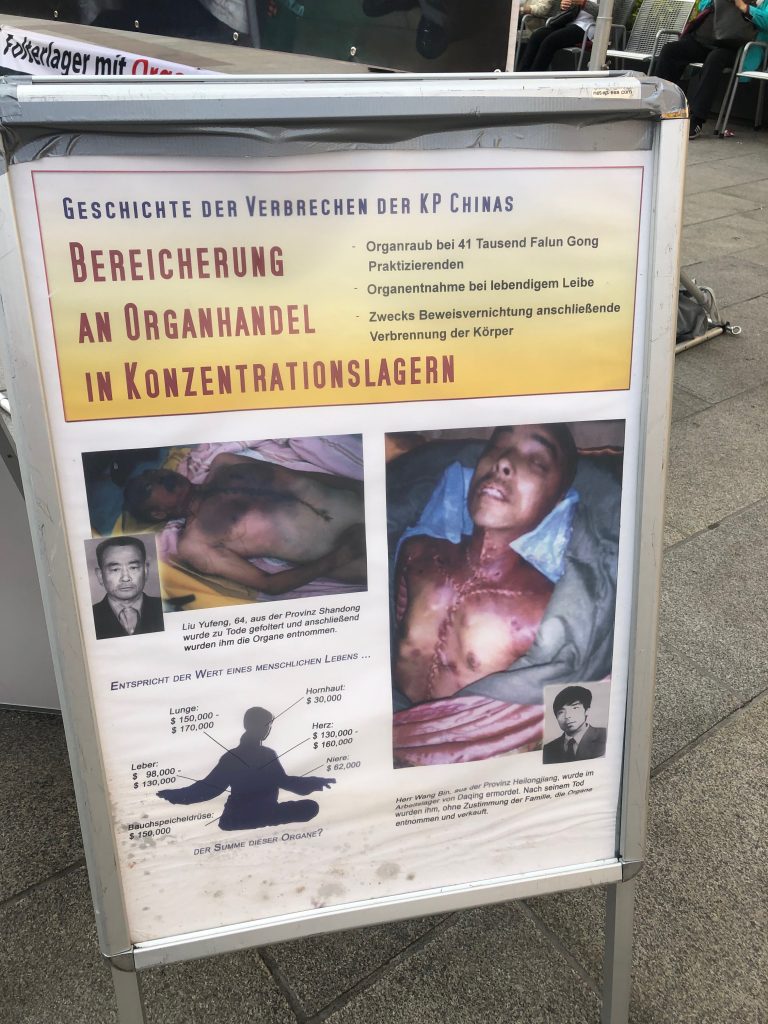Organ Harvesting. Brainwashing. Massacring. There’s an ethnic cleansing crusade in China, and you might not even know about it.
Many Americans understand the issues that President Donald Trump is rightfully addressing in the ongoing U.S. China trade war: intellectual property theft ravaging between $225 and $600 billion from the US economy annually; currency manipulation that crushes America’s manufacturing and export sectors; government-subsidized products that unfairly and artificially price Chinese goods below international competitors in world markets, leading to the astonishing annual China-U.S. trade deficit of $323 billion.
Yet another offense that China is orchestrating is little known to Americans; it may be the most egregious of all: the internment of hundreds of thousands of Uighurs.
The Uighurs are predominantly located in the northwestern part of China, known as the Xinjiang Province. They are a Muslim, Turkic-speaking population of 10 million. Their size, strength and religious beliefs have created ethnic tension with China’s Han Chinese citizens, who account for 91 percent of the country’s population.
After the Chinese government ethnically diluted the region by forcing large populations of Han Chinese into Uighur communities, protests turned into violent demonstrations. Orchestrated killings ensued, and in 2009, a riot in the capital of Xinjiang resulted in approximately 200 deaths, with hundreds more injured.
Public pressure was put on the Chinese government to take proper measures to curb extremism. Unfortunately, they used their authoritarian powers to stomp on the rights of the Uighurs and throw them into “re-education” camps, which are, in truth, nothing more than modern-day concentration camps. Many Uighurs in the Xinjiang region don’t even make it to the camps. They simply go missing.
Chinese authorities tout their camps as Mandarin-teaching, socially-beneficial facilities, but corroborated reports show otherwise: forced prisoners tortured through waterboarding, brainwashed by propaganda, and stripped of their most basic religious and human rights. In some cases, breathing prisoners’ organs are harvested. Others are mercilessly assassinated. International human rights leaders are calling China’s actions crimes against humanity.
This practice started years ago, but a drone video surfaced this week of hundreds of Uighurs sitting blindfolded, hands tied to their back, like little puppets as Chinese authorities stand proudly.
China’s internment of upwards of 1 million minorities is just another testament to their rampant, growing authoritarianism. President Xi’s regime’s increasing disregard for human liberty flies in the face of the post-Enlightenment belief — and democracy’s greatest principle — that all men are created equal.
This comes at a time when President Xi is expanding his internal power, most notably his re-writing of China’s constitution to extend his presidential term until the end of his life. Xi has also ominously presided over the dystopian placement of roughly 176 million cameras in the country that classify each and every person according to their loyalty and value to the Chinese government.
But Xi isn’t content to buttress his powers domestically. He has clear and unrestrained hegemonial dreams that go well beyond China’s borders. Xi’s One Belt, One Road initiative, in which China is lending money at usurious rates to developing countries for massive infrastructure projects, is increasing China’s influence throughout Africa, Asia and Central and South America.
President Xi — or Dictator Xi, really — is now the most powerful and unchecked leader since Mao Zedong. His oppressive rule is causing China to do a “Great leap” backward. But unlike Mao, Xi presides over an economically and militarily daunting China. The world cannot afford to ignore him.
Trump is now trying to clean up Obama’s failed foreign policy of allowing Bashar Al Assad to cross his imaginary “red line” in Syria, complacency in a communist North Korea with nuclear weapons, idly watching the Russians annex Crimea, and so forth. Trump’s tariffs on the Chinese economy are a way to push back on China’s military and economic transgressions — as well as its human rights abuses against the Uighurs.
These threatening escalations in China’s power – projected to surpass the United States’ economy for many decades to come, by the way – begs a question that the United States has been asking itself for decades: should Nixon have opened up China to US markets beginning in 1972, or should he have kept the tiger in its cage?

